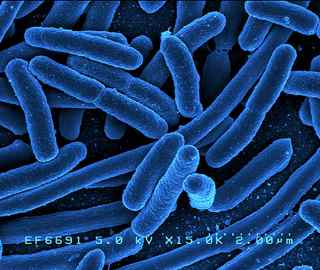From Public Health – Seattle & King County
Public Health is investigating a new outbreak of seven people infected with Shiga toxin-producing E. coli (also known as STEC) in King County.

Cases have been among people ranging in age from 11 months old to 35 years old, with 5 cases occurring in those under 15 years of age.
Cases have been reported during December 31, 2021–August 18, 2022, with 6 cases reported since June 26, 2022. Currently all 7 of the ill people are from East African communities.
The investigation is ongoing. The majority of ill people have reported eating multiple types of meat, including goat and ground beef, during their exposure period but we cannot rule out other possible sources at this time.
Genetic fingerprinting results (whole genome sequencing) indicate that all 7 ill people have the same genetic strain meaning they likely have a common source of infection. Updates will be posted when more information is available.
Illnesses
All 7 people developed symptoms consistent with STEC, including diarrhea (often bloody), abdominal cramping, nausea, and vomiting. Six of the seven people had illness onsets from June 20-August 1, 2022. One additional person was identified by WGS with an onset in December 2021. Four people have been hospitalized; this includes three children who developed a type of kidney complication called hemolytic uremic syndrome (HUS). Six people have recovered, and one is currently recovering.
At this time, this outbreak does not appear to be related to a multistate outbreak initially found in at least 4 different states, as reported on the CDC website.
Public Health actions
Public Health is conducting interviews with the people ill with STEC or their parents/guardians to identify any common exposures and provide guidance to help prevent further spread. We are working with the Washington State Department of Health to complete further testing, to identify related cases in other counties, and to begin traceback of products in common. We are also working closely with community partners to share information and guidance about this outbreak and how to prevent more infections.
Public Health Message
Raw meats like ground beef, goat, and lamb sometimes have germs like STEC, and have been associated with outbreaks in the past. Follow these four food safety steps to prevent getting sick from STEC.
- Clean: Wash your hands, utensils, and surfaces often. Rinse fruits and vegetables under running water before eating, cutting, or peeling.
- Separate: Keep food that won’t be cooked separate from raw meat, poultry, and seafood.
- Cook: Use a food thermometer to make sure you have cooked your food to a temperature high enough to kill germs.
- Chill: Refrigerate perishable food (food that goes bad) within 2 hours. If the food is exposed to temperatures above 90°F (like a hot car or picnic), refrigerate within 1 hour. Thaw food in the refrigerator, not on the counter.
If you or your child develop painful or bloody diarrhea, diarrhea that lasts more than 3 days or is accompanied by a high fever or decreased urine, contact your healthcare provider to see if testing for STEC is indicated.
We want to make sure this illness does not spread to people at risk for severe or life-threatening infections. Children with symptoms should not attend childcare or preschool. Others who are sick should not go to work in food service, healthcare, or childcare settings. Public Health will help you do more testing to make sure you are no longer contagious to other people before returning to work, childcare or preschool.
Laboratory testing
All seven of the cases have confirmatory testing indicating infections with E. coli O157:H7 via culture. All seven cases have the same strain of STEC, based on genetic fingerprinting (whole genome sequencing or WGS) at the Washington State Public Health Laboratory.
To learn more, go to: Public Health – Seattle & King County


